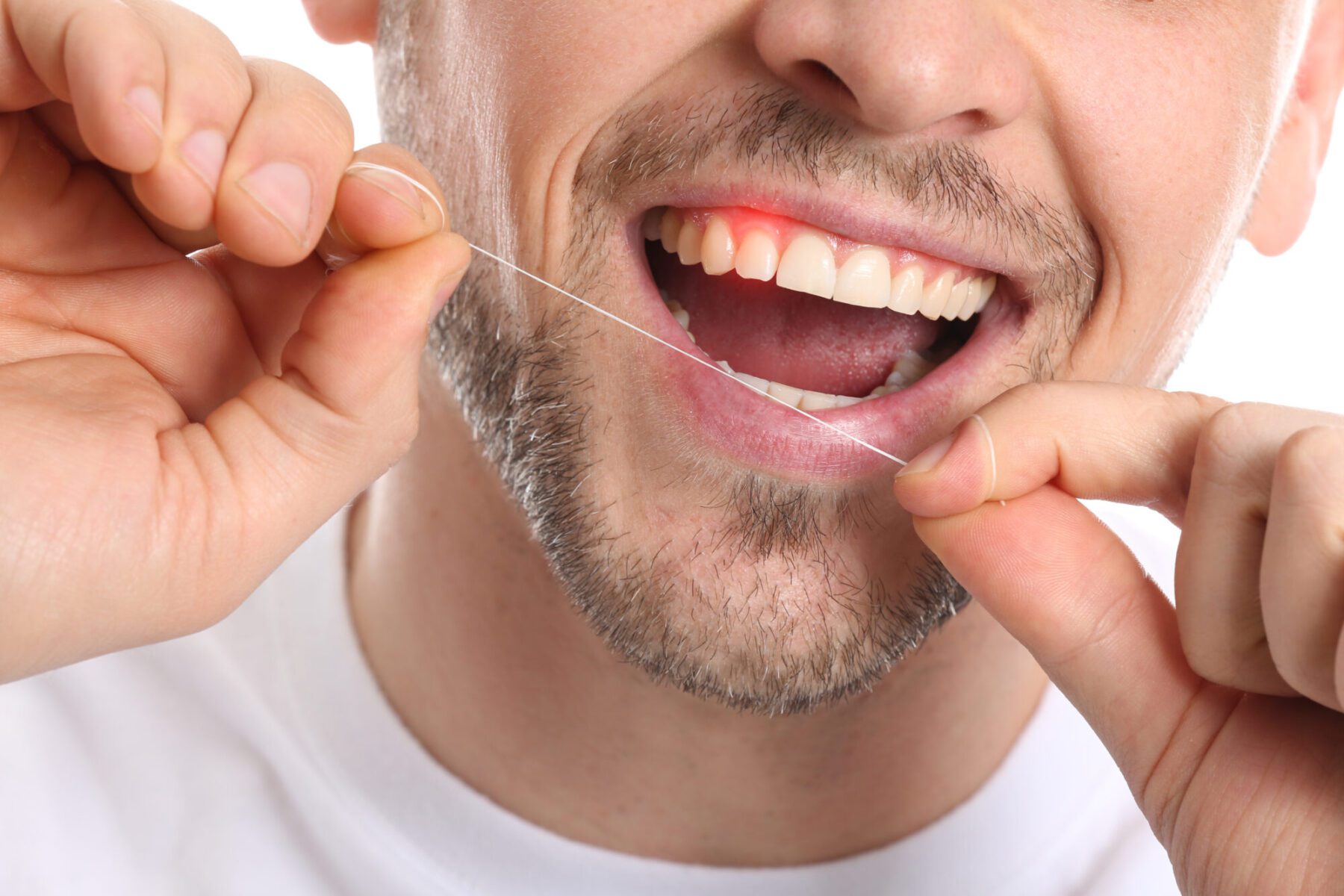
Why Do My Gums Hurt After Flossing?
You brush your teeth twice a day, but when it comes to flossing, you’re either inconsistent or completely new to the routine. Now that you’ve committed to daily flossing, you’re experiencing something unexpected: gum pain that ranges from mild discomfort to sharp, throbbing sensations that make you question whether you should continue. This frustrating experience affects countless people who are trying to improve their oral health. Fortunately, gum pain after flossing is usually temporary and treatable. Understanding why it happens and knowing when to seek professional help can transform your flossing experience from painful to beneficial. Distinctive Dental Solutions can identify the cause of your discomfort and provide effective treatments.
Common Causes of Gum Pain After Flossing
Inflammation from Bacterial Buildup
The most frequent culprit behind post-flossing pain is gingivitis, inflammation caused by plaque and bacteria accumulating along your gumline. When you haven’t flossed regularly, harmful bacteria create colonies between your teeth and under your gums. Your first few flossing sessions disturb these bacterial communities, triggering an inflammatory response that manifests as pain, swelling and often bleeding.
This inflammation is actually your immune system working to fight the bacterial invasion. While uncomfortable, it signals that flossing is necessary for your gum health.
Improper Flossing Technique
Many people unknowingly use too much force when flossing, snapping the floss down into their gums or sawing aggressively between teeth. This trauma to delicate gum tissue causes immediate pain and can worsen inflammation.
Proper flossing involves gentle, controlled movements. The floss should slide smoothly between teeth and curve around each tooth in a C-shape, cleaning the tooth surface without injuring the gum.
Existing Infections or Abscesses
If your pain is severe, localized to one area, and accompanied by swelling, you may have a gum infection or abscess. These conditions require immediate dental attention, as infections can spread to other parts of your mouth and body if left untreated.
Food Particles Pushed Deeper
Hasty or improper flossing can sometimes push food particles and debris further into gum pockets instead of removing them. These trapped particles continue to irritate the tissue, causing persistent pain and inflammation.
Underlying Health Conditions
Certain medical conditions make your gums more sensitive and prone to inflammation. Diabetes, vitamin deficiencies, hormonal changes and autoimmune disorders can all increase your risk of experiencing pain after flossing, even when using proper technique.
When Should You Contact Your Dentist?
While some initial discomfort is normal when establishing a flossing routine, certain symptoms warrant professional attention:
- Persistent pain lasting more than two weeks despite gentle technique
- Severe throbbing pain that interferes with eating, drinking or sleeping
- Swelling that extends beyond the gumline to your face or jaw
- Fever or general malaise accompanying gum pain
- Pus or discharge from the affected area
- A bad taste in your mouth that doesn’t improve with brushing
These symptoms may indicate an infection, abscess or other serious condition requiring prompt treatment.
Building a Pain-Free Flossing Routine
The key to comfortable flossing lies in proper technique and patience. Start with gentle pressure and gradually increase your flossing frequency as your gums adapt. Use waxed floss or consider alternatives like water flossers if traditional floss causes too much discomfort.
Remember that some initial sensitivity is normal, especially if you’re new to flossing or have been inconsistent. Your gums need time to heal and strengthen. Most people notice significant improvement within one to two weeks of regular, gentle flossing.
Your Path to Healthy Gums
Experiencing gum pain after flossing doesn’t mean you should abandon this crucial oral health practice. With proper technique, patience, and professional guidance when needed, you can overcome this temporary discomfort and enjoy the long-term benefits of healthy gums.
At Distinctive Dental Solutions, we understand that dental discomfort can be concerning and frustrating. Our approach focuses on education and individualized care to help you achieve lasting oral health. We’ll work with you to identify the cause of your gum pain and develop a personalized plan that makes flossing comfortable and effective. Contact us today and take the first step toward pain-free flossing and optimal gum health.



